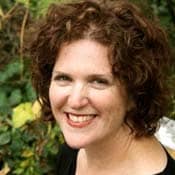 One week during my internship, our pastor was out of town and so I was asked to speak at a local ecumenical service that included Catholic, Greek Orthodox, Episcopal, Progressive Presbyterian, and Evangelical congregations. Each pastor was to give a five-minute reflection.
One week during my internship, our pastor was out of town and so I was asked to speak at a local ecumenical service that included Catholic, Greek Orthodox, Episcopal, Progressive Presbyterian, and Evangelical congregations. Each pastor was to give a five-minute reflection.
Before the service, the pastors had dinner together. I arrived to find I was the only woman, the only non-ordained speaker, and by far, the youngest. However, the Catholic priest who was my host welcomed me warmly, sat me at the head of the table, and asked me to give the blessing for our meal. I was touched by his generosity and hospitality.
At the service, I gave my five-minute reflection and felt it went pretty well, but I was unprepared for the response I received afterward. Woman after woman from the Catholic parish came up to me gushing about how wonderful I was. It all seemed a little out of proportion for a five-minute talk, but reflecting later, I realized how rare it was for them to hear a woman's voice in the pulpit.
I remember the first few times I heard women preach. After three decades of listening to men, it was an overwhelming experience to hear a woman's voice and perspective in that place of authority. Something in my own experience and engagement with scripture and the life of faith felt validated and empowered and healed in those first sermons that I heard.
Recently, I was one of two Protestants in a class full of young Jesuit seminarians. The professor spoke of preaching and said, "For you men in the room . . ." Without thinking ahead, I said, "Well, not only men . . ." Surprised, this Catholic sister looked at me and asked, "Do you plan to be ordained?" "Yes, I'm pretty sure I will be," I responded. The room exploded into applause. Again, I was overwhelmed and humbled at what I have come to take for granted in my chosen tradition.
It is still powerful and revolutionary to hear a woman preach in many places. And not only women. When we give voice in the pulpit to voices long silenced in our churches, bridges are built and divisions are healed. It is not only the preacher who is heard, but all those who are listening who have felt shut out feel heard as well.
I know that many traditions and theology do not allow women to preach. Even if it is not possible for women to preach, consider what you may have missed in the text by listening to only one gender. How could you authentically invite these voices into your church's experience? Maybe they are not as skilled or polished due to lack of opportunity, but do not underestimate the simple power of their presence in your congregation to heal and illuminate.
2/16/2011 5:00:00 AM





